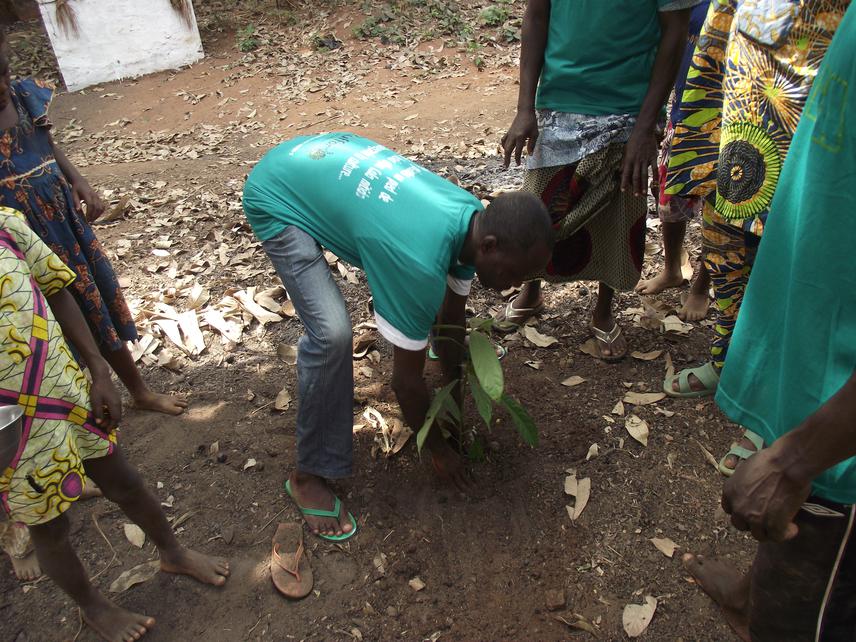Merveille Koissi Savi
Other projects
28 Mar 2017
Ecology of Regeneration and Restoration of Natural Habitats of Garcinia kola and Cola nitida in Benin: Rural Community based Approach
Cola trees are among the most important wild crops in the forest zone of West and Central Africa. Literature reports that they are highly used in South Benin during traditional ceremonies. Because seeds represent the most sought-after part, observers suspect threats for its natural regeneration. Some recent field prospection has revealed their scarcity in some regions where it was previously reported as abundant. Therefore our project aims to deepen the social and ecological knowledge of the species, and establish a good public awareness for conservation.

Cola nitida and Garcinia kola occur in semi-deciduous forests but these forests are not well protected due to high level of anthropogenic pressure. Therefore their habitats are widely fragmented leading many plant species to be endangered. Apart from their presence in Benin ceremonies, the rural usage in Benin is remaining uncertain.
Consequently the real use in rural community needs to be clarified. Because their habitats are ongoing loss, their rebuilding through enrichment is required. This project comes to fill this gap and enhance the sustainable use of environment while arousing interest in the conservation of this species in natural forest and in their public places. It aims at: -Assessing the rural knowledge on species:
-Assessing the species spatial distribution
-Undertaking silvicultural tests for the species
-Informing rural community on the threat of species and different business opportunity
During this project we will make an effort to include indigenous people as an integral part of our project. We expect a total of 50 representatives of local villages, especially committees of natural resources management and clubs of environmental education, who will be trained on C. nitida and G. kola trees nursery establishment and management for the restoration of the degraded areas. At least 5000 trees seedlings of C. nitida and G. kola will be grown for this purpose. More than 10 ha of degraded forest lands and agro-forest system will be replanted with this native tree species of economic and biological importance and be used as training material. Moreover, we will inform the local peoples on the functions, products and services of traditional forests and the need for sustainable management to ensure that forest benefits continue forever. This shall be through sensitization meetings with at least 25 local NGOs, 700 farmers and the 8 primary schools present in the study area. These findings will help to make available strategy of agro-forestry management to enhance the biodiversity conservation in Benin. Through this work at least two scientific papers will be written and 200 guide-posters elaborated and shared among the different stakeholders.